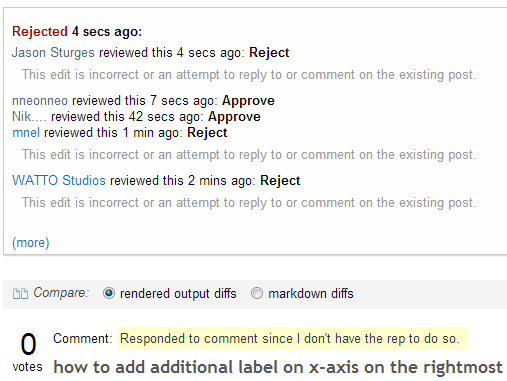The whole edit process is a compromise between a Wikipedia-style extreme where anyone can edit anything, and a blog server extreme where anyone is the sole owner of the content they provided and no one can ever mutate anyone else's answer.
We are much closer to the Wikipedia way, which is compatible with the purpose of the site. We also have notification and bumping mechanisms in place. Edits that the original poster or the community did not like get rolled back soon. On the other hand: the original poster retains the "ownership" of the post and edits should aim at making the same question easier to be found, recognized and answered, not at changing it to a different question.
People who have approved 400+ edits typically have posted a lot of their own content as well. There are about 300 of such users on Stack Overflow, all but one with 2K+ reputation, which means that all of them (along with about 16000 other users) already have the edit privilege. All those 16K users can edit anything, needing zero approvals for that.
Even a higher reputation user may (and will) occasionally damage content by issuing or approving an edit that does more harm than good. (These actions do not bring any reputation benefit to the editor/approver and are probably done out of good intentions most of the time.)
The good side of low approval thresholds is that most of the time, an edit or suggested edit gets published very quickly.
- This reduces duplication of effort by multiple editors working off an old version of a post.
- This reduces confusion associated with different active visitors looking at different versions of the post.
- This reduces overall time to reach a clear question, and hopefully, a helpful answer.
- This reduces effort spent on reviewing content addition.
This feature request addresses a real problem. I would, however, prefer solutions that do not make the editing process significantly slower. I don't think that there is currently any efficient way for an approver to learn about a rollback of the approved post, and to learn from their own share of the mistake.


